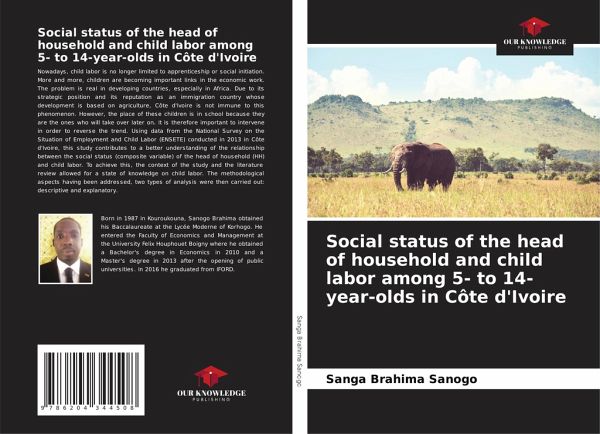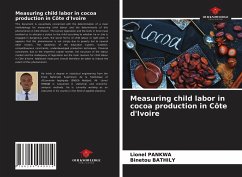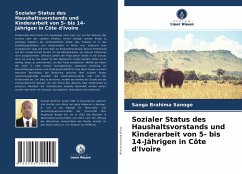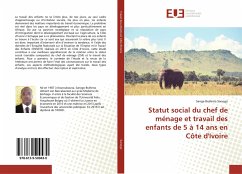
Social status of the head of household and child labor among 5- to 14-year-olds in Côte d'Ivoire
Versandkostenfrei!
Versandfertig in 6-10 Tagen
41,99 €
inkl. MwSt.

PAYBACK Punkte
21 °P sammeln!
Nowadays, child labor is no longer limited to apprenticeship or social initiation. More and more, children are becoming important links in the economic work. The problem is real in developing countries, especially in Africa. Due to its strategic position and its reputation as an immigration country whose development is based on agriculture, Côte d'Ivoire is not immune to this phenomenon. However, the place of these children is in school because they are the ones who will take over later on. It is therefore important to intervene in order to reverse the trend. Using data from the National Surv...
Nowadays, child labor is no longer limited to apprenticeship or social initiation. More and more, children are becoming important links in the economic work. The problem is real in developing countries, especially in Africa. Due to its strategic position and its reputation as an immigration country whose development is based on agriculture, Côte d'Ivoire is not immune to this phenomenon. However, the place of these children is in school because they are the ones who will take over later on. It is therefore important to intervene in order to reverse the trend. Using data from the National Survey on the Situation of Employment and Child Labor (ENSETE) conducted in 2013 in Côte d'Ivoire, this study contributes to a better understanding of the relationship between the social status (composite variable) of the head of household (HH) and child labor. To achieve this, the context of the study and the literature review allowed for a state of knowledge on child labor. The methodological aspects having been addressed, two types of analysis were then carried out: descriptive and explanatory.












